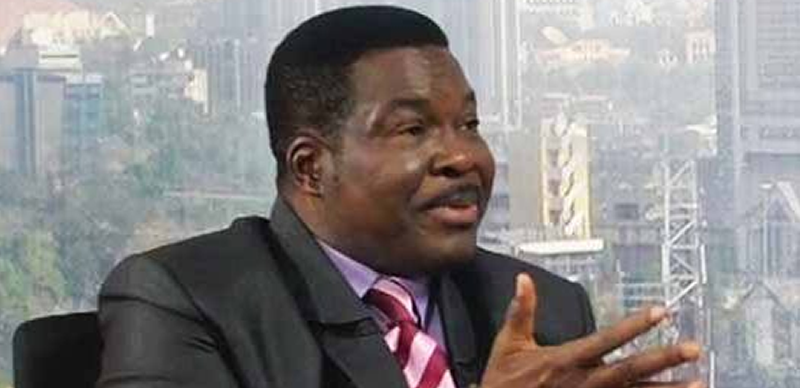Constitutional lawyer and Senior Advocate of Nigeria, Mike Ozekhome, has renewed calls for the complete replacement of Nigeria’s 1999 Constitution, describing it as an “illegitimate document” incapable of addressing the country’s challenges.
Speaking during an interview on Arise News on Monday, Ozekhome dismissed ongoing constitutional amendment efforts as futile, insisting that no amount of tweaking can fix what he called a fundamentally flawed foundation.
“The issue is not about amending the constitution. I have said again and again that you cannot amend a bad document.
“A bad, illegitimate document that never proceeded from the people through a popular plebiscite or referendum can never be the product of the people. I have said it again and again, that even one million amendments to the present constitution cannot solve it.”
According to him, the current constitution lacks legitimacy and moral authority because it was imposed by the military without the consent of the Nigerian people.
READ ALSO: 39 Constitutional Amendment Bills Scale Second Reading In Reps
“We are still talking about constitutional amendment when we should be talking about introducing a brand new constitution that reflects our diversity as a nation, reflects our multi-religious linguistic inclination,” he added.
Ozekhome argued that the country needs a complete constitutional reset to cleanse itself of its structural ailments.
“What we need is a total beginning, a fresh beginning, like from a tabula rasa, like Naaman the leper who dipped himself in the River Jordan seven times and became cleansed of his leprosy. That is what we need,” he added.
Ozekhome also took aim at the origin of the current constitution, which he said was enacted under Decree No. 24 of 1999 by the military regime of General Abdulsalami Abubakar.
He said the document’s preamble, which begins with “We the people,” is deceptive and undermines the document’s credibility.
READ ALSO: No State Creation Request Meets Constitutional Requirements – Deputy Speaker Kalu
“The present constitution, apart from its original sin, like that of Adam, of being a product of a military dictator, through the promulgation of the decree number 24 of 1999 told a lie about itself in its preamble by saying ‘we the people’ of Nigeria do hereby make and give to ourselves the following constitution,” he said.
Ozekhome also criticised the constitution’s structure, which he said masquerades as federalism while actually concentrating power at the centre. He said the system strips Nigerians of their rights and fuels economic inefficiency.
“It cannot take us forward because one, it operates a unitary system of government, all the provisions, not a federal system of government. Two, it dispossesses the people of their economic, social, political, and cultural rights.
“Three, it is too heavy, on the side of wastages and leakages, which makes Nigeria today use about 70% to 80% of our national resources, to service recurrent expenditure and public debts, thus leaving only 20% to 30% for capital expenditure,” he explained.
“No nation can grow like that. We are not going to grow like that. So when we are talking about a constitution like this being amended, you are really pursuing shadows where you should pursue substance.”
READ ALSO: Constitution Amendment: South-East Demands Rotational Presidency, Legislative Seats For Women
He questioned the size and cost of Nigeria’s federal legislature and bureaucracy, describing it as bloated and unsustainable.
“What, for example, are we doing with 109 senators and 360 House of Representatives members? Do you know the Senate has over 45 committees? Each committee is fully staffed with members and employees.
“We have a system where one position has accretions up to 10. Thus, we have an SSA, Senior Special Assistant, after a Special Advisor, Senior Special Assistant, then Special Assistant, then Personal Assistant. Do you know how many ministries we are operating? Well over 40 ministries.”
Ozekhome warned that unless Nigeria discards its current constitution in favour of a truly people-driven document that reflects its ethnic, cultural, and religious diversity, it will remain stuck in a cycle of dysfunction and stagnation.
(PUNCH)
